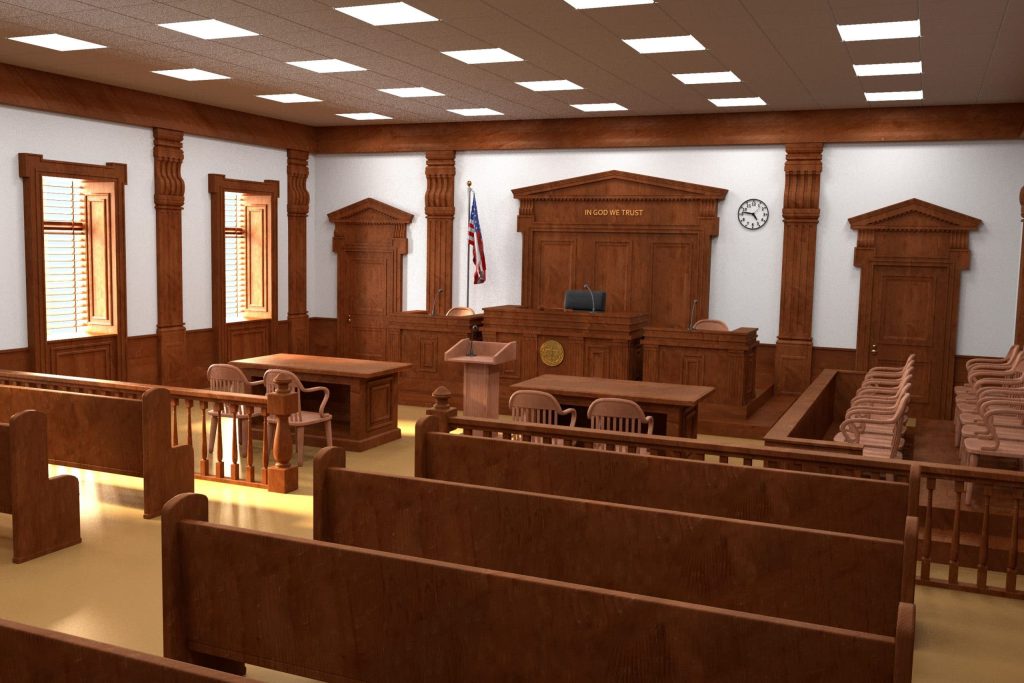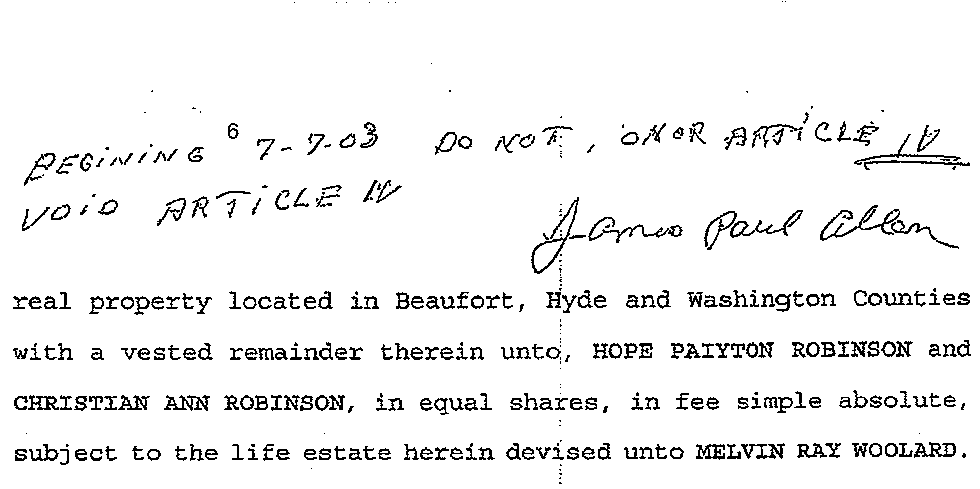Will Deletion Attempt Was Ineffective

We see it all the time. We ask our clients not to write on their wills or trusts. This weekly newsletter regularly reports stories about how it does not work. Nonetheless, people keep trying to make a will deletion or modification by scribbling on the will itself. Please remember, folks: when the issue becomes important, […]
Disinherited Step-Grandson Lacks Standing to Challenge Codicil

Will challenges are far less common than most people think. One reason: few people have any basis on which to challenge a will, even if they feel aggrieved. In legal terms, most potential challengers simply lack any “standing” to contest a will. A recent Texas case illustrates the concept nicely. Lucy Lee’s will and codicils […]
Please Don’t Handwrite Changes On Your Will

Arizona law allows you to sign a “holographic” will (or a holographic codicil). That means you can handwrite your own will and sign it. Such a will or codicil does not need the two witnesses usually required. So that means you can easily write — or change — your will yourself. Right? Please do not […]
Can a Copy of a Missing Will be Admitted to Probate?
AUGUST 15, 2016 VOLUME 23 NUMBER 30 You’ve signed your will. We’ve given you the original in a fancy envelope, and a copy showing your signatures. What should you do with it? For most people, most of the time, it is sufficient to just keep the original will in a convenient place at home. What […]
Can You Change Your Will By Writing On It?

NOVEMBER 18, 2013 VOLUME 20 NUMBER 44 So you have a will, and you want to make some changes. Can you just write in the new provisions? How about if you sign somewhere on the document?Can it be a copy of your will, or does it have to be on the original to be effective? […]
Missing Will Presumed Revoked, But Codicil Partially Reinstates It
MAY 14, 2012 VOLUME 19 NUMBER 19 In Arizona (as in most other states) there is an important rule about wills: if the original document was in the possession of it’s signer, and it can not be found after the signer’s death, then there is a presumption that it was destroyed. Not only that, but […]
Amending Your Will–Caution: Do Not Try This At Home
FEBRUARY 20, 2012 VOLUME 19 NUMBER 7 OK — you’ve signed your will and paid the big lawyer’s fee. Now you want to make a change. Do you know how to modify your will? Can you do it without incurring another fee? Shouldn’t it be easy to make the change? All that might have been […]
Court Distinguishes Between Undue Influence, Incapacity
DECEMBER 28 , 2009 VOLUME 16, NUMBER 66 Contrary to public perceptions, will contests are actually rare. In fact, few wills are written in such a way that anyone would benefit from a contest — most wills leave property to the same people who would inherit if there was no will. When there is a […]
Contract Not To Change Will Is Enforceable Against Estate
AUGUST 25, 2003 VOLUME 11, NUMBER 8 Any competent adult can sign a will disposing of his or her property—unless he or she has agreed not to do so. Though they may seldom be used, the law of most states permits individuals to enter into a contract not to change their wills (or, for that […]


